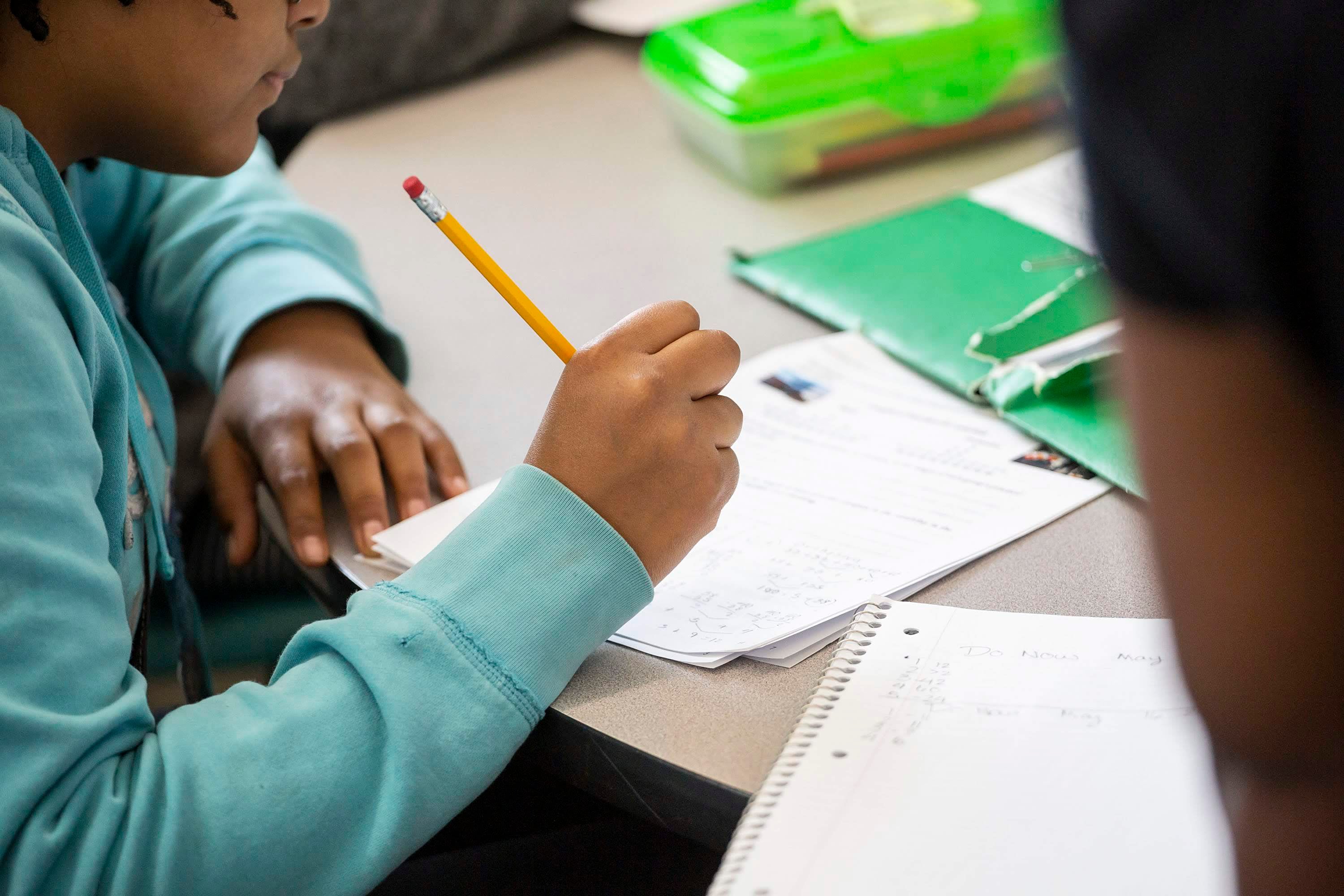Gov. Jared Polis on Monday signed into law Colorado’s school finance act, laying the path toward eliminating a state practice used since the Great Recession that holds back money from schools.
In the 2023-24 school year, the state will spend more than $9 billion on education and withhold $141 million from schools. Statewide, spending per student next year will increase to $10,614, $1,000 more per student than this year.
The school finance bill also will fund state-authorized charter schools at a level similar to other schools starting in 2023-24, adding more than $42 million for those schools. State-authorized charter schools don’t get a cut of locally raised tax dollars as district schools do.
Rural schools will get $30 million more to help with their higher costs related to smaller student populations. Colorado rural schools have gotten similar state aid since 2017.
Polis, surrounded by lawmakers, educators, and students at Thornton Elementary School, also signed two bills on Monday that will boost special education funding and provide statewide support for math instruction.
Together, the bills represent a significant investment in K-12 education statewide and a promise to fully meet the constitutionally set minimum for education spending by the 2024-25 school year.

Polis said the school finance bill means a stronger education system for Colorado, including better teacher pay, smaller class sizes, and more funding for the arts.
“We are catching up to where we should be for all public schools next year, and that’s very exciting news for Colorado kids,” he said during the bill signing.
Since 2009, lawmakers have diverted money that should go to K-12 schools to fund other priorities, a practice known as the Budget Stabilization Factor. This year’s school finance law, however, aims to eliminate that practice by the next budget year. The state has withheld over $10 billion from schools since 2009.
The constitution requires Colorado to increase funding yearly by the rate of student population growth plus inflation. The state withholding, however, has meant schools haven’t gotten what’s required by its school finance formula.
State Sen. Rachel Zenzinger, an Arvada Democrat who chairs the Joint Budget Committee that helps craft the budget and school finance act, said the state will also meet its obligation to fully fund its share of special education.
The state will spend $40.2 million more next year on special education, increasing total spending to about $340 million, or a 13% increase.
Polis also signed a bill that will invest more in teaching math after state and national tests showed students lost ground in that subject during the pandemic. The state will spend $25 million via three-year grants for after-school math tutoring programs that will be run by school districts, charter schools, and community groups.
The bill also will provide optional training for teachers and parents, offer evidence-based resources for math programs, and require teacher preparation programs to train prospective educators in math instruction.
Zenzinger said now that the state is on track to fully fund schools within the next budget cycle, she wants lawmakers to rethink what it costs to fully educate a student.
“It’s going to be really, really important that once we have established full funding, whether that is then adequate,” Zenzinger said.
Jason Gonzales is a reporter covering higher education and the Colorado legislature. Chalkbeat Colorado partners with Open Campus on higher education coverage. Contact Jason at jgonzales@chalkbeat.org.








